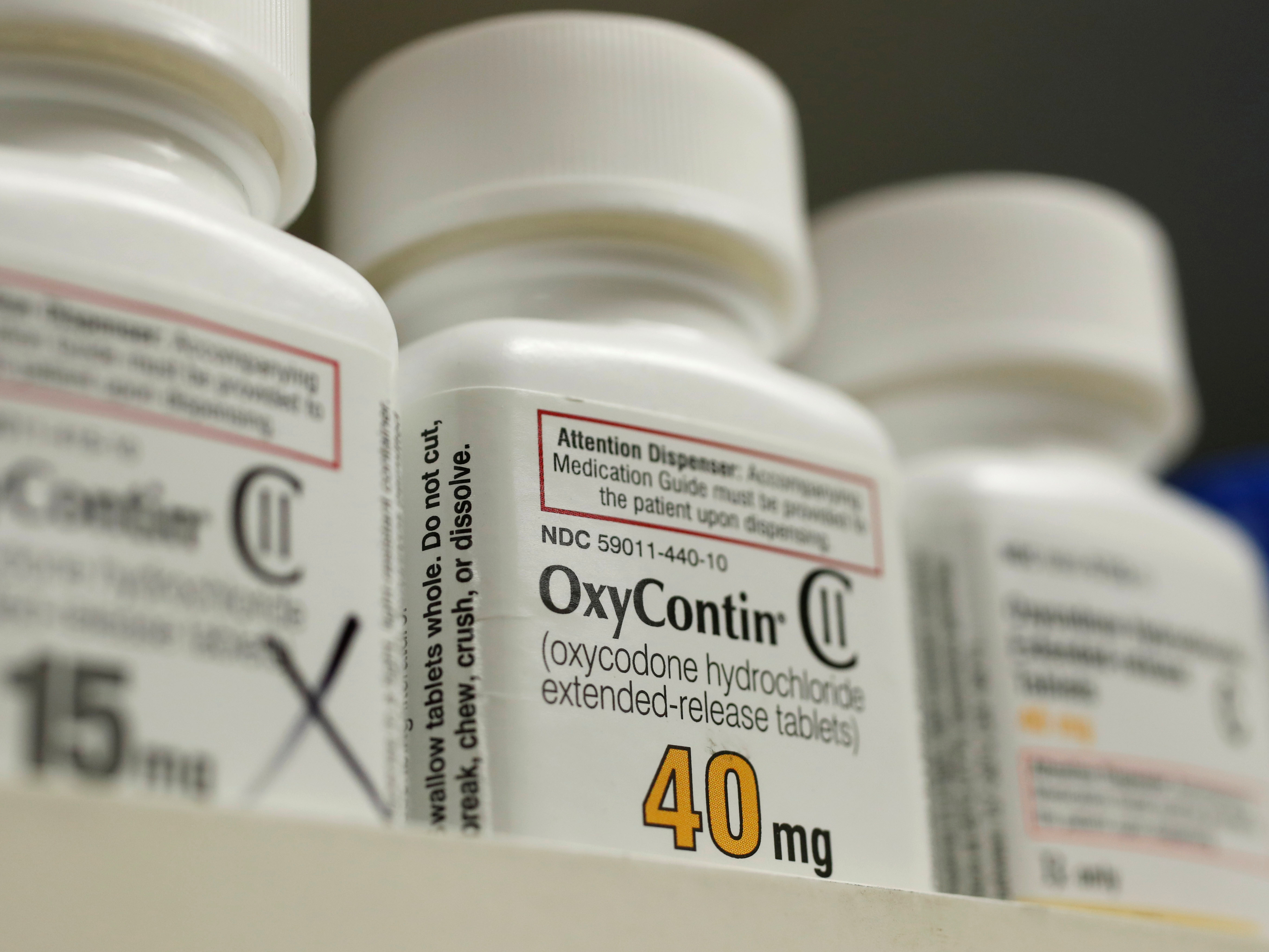The nationwide opioid litigation movement reached its first major settlement


A free daily email with the biggest news stories of the day – and the best features from TheWeek.com
You are now subscribed
Your newsletter sign-up was successful
The public still won't hear details regarding Purdue Pharma's push to market the painkiller OxyContin. Testimony from members the company's founding family, the Sacklers, won't happen either.
The pharmaceutical giant reached a $270 million dollar settlement on Tuesday with the state of Oklahoma, and legal experts argue that the settlement could help set a floor amount for other lawsuits filed against Purdue and the Sacklers, The Wall Street Journal reports. Oklahoma's attorney general claimed that Purdue's aggressive marketing tactics for OxyContin and other prescription painkillers helped fuel America's opioid crisis; the two sides reached the agreement just two months before the scheduled trial.
The New York Times reports that $100 million from the settlement will fund an addiction treatment and research center at Oklahoma State University in Tulsa, $70 million will pay Oklahoma cities, counties, and Native American tribes and to reimburse the state for its litigation costs. The Sacklers, who were reportedly not named in the lawsuit, will contribute an additional $75 million over five years.
The Week
Escape your echo chamber. Get the facts behind the news, plus analysis from multiple perspectives.

Sign up for The Week's Free Newsletters
From our morning news briefing to a weekly Good News Newsletter, get the best of The Week delivered directly to your inbox.
From our morning news briefing to a weekly Good News Newsletter, get the best of The Week delivered directly to your inbox.
Other companies involved in the lawsuit, such as Johnson and Johnson, have not settled, however. The trial, therefore, is still scheduled for May 28.
Purdue and the Sacklers, meanwhile, still face more than 1,600 opioid lawsuits from 37 states, and numerous cities, counties, and tribes across the United States. For the time being, though, the public won't hear "full recounting of Purdue's actions in promoting OxyContin to doctors and underplaying its addictive properties," writes the Times.
A free daily email with the biggest news stories of the day – and the best features from TheWeek.com
Tim is a staff writer at The Week and has contributed to Bedford and Bowery and The New York Transatlantic. He is a graduate of Occidental College and NYU's journalism school. Tim enjoys writing about baseball, Europe, and extinct megafauna. He lives in New York City.
-
 The Week contest: AI bellyaching
The Week contest: AI bellyachingPuzzles and Quizzes
-
 Political cartoons for February 18
Political cartoons for February 18Cartoons Wednesday’s political cartoons include the DOW, human replacement, and more
-
 The best music tours to book in 2026
The best music tours to book in 2026The Week Recommends Must-see live shows to catch this year from Lily Allen to Florence + The Machine
-
 Trump HHS slashes advised child vaccinations
Trump HHS slashes advised child vaccinationsSpeed Read In a widely condemned move, the CDC will now recommend that children get vaccinated against 11 communicable diseases, not 17
-
 A fentanyl vaccine may be on the horizon
A fentanyl vaccine may be on the horizonUnder the radar Taking a serious jab at the opioid epidemic
-
 Nitazene is quietly increasing opioid deaths
Nitazene is quietly increasing opioid deathsThe explainer The drug is usually consumed accidentally
-
 FDA OKs generic abortion pill, riling the right
FDA OKs generic abortion pill, riling the rightSpeed Read The drug in question is a generic version of mifepristone, used to carry out two-thirds of US abortions
-
 RFK Jr. vaccine panel advises restricting MMRV shot
RFK Jr. vaccine panel advises restricting MMRV shotSpeed Read The committee voted to restrict access to a childhood vaccine against chickenpox
-
 The UK’s opioid crisis: why the stats don’t add up
The UK’s opioid crisis: why the stats don’t add upThe Explainer A new report has revealed that the UK’s total of opioid-related deaths could be much greater than official figures show
-
 Texas declares end to measles outbreak
Texas declares end to measles outbreakSpeed Read The vaccine-preventable disease is still spreading in neighboring states, Mexico and Canada
-
 RFK Jr. shuts down mRNA vaccine funding at agency
RFK Jr. shuts down mRNA vaccine funding at agencySpeed Read The decision canceled or modified 22 projects, primarily for work on vaccines and therapeutics for respiratory viruses
